A Taste of Pai
- Aaron Schorr
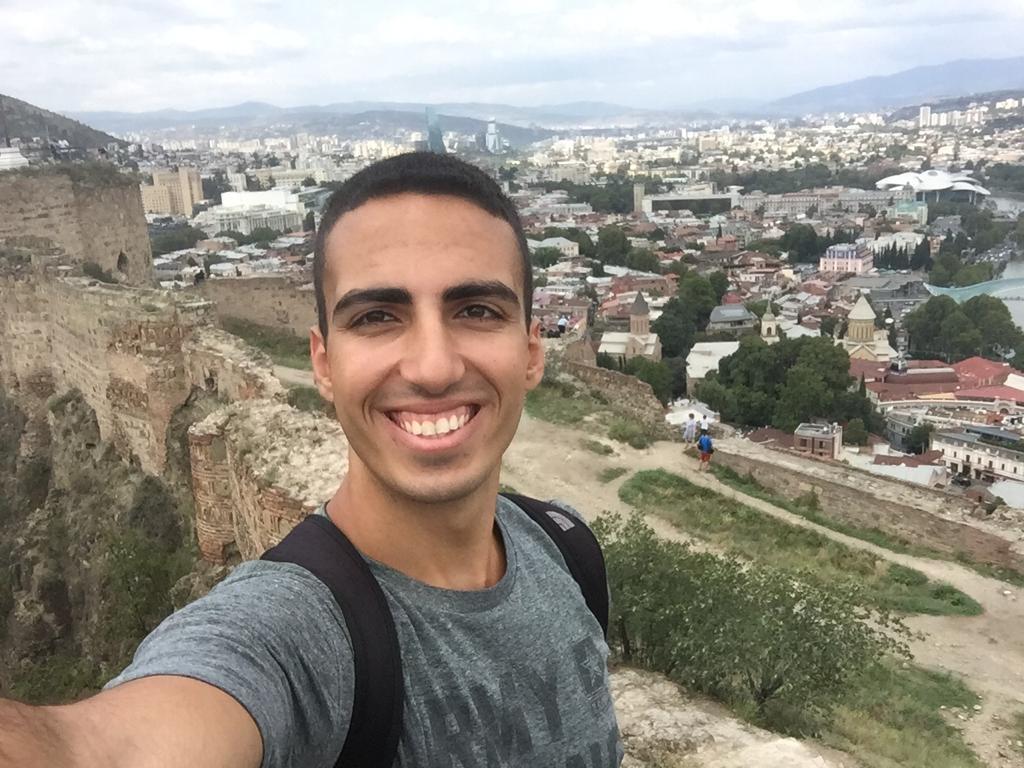
- May 27, 2022
- 10 min read
Everything hurt as I woke up. My head was pounding from whatever had been in the bright blue drink at the restaurant-turned-club the previous night, my back had yet to recover from Master Deng’s punishment, and my left foot had a giant black-and-blue mark where Richard had dropped his 3-pound helmet on it the previous day. Still, the forecast was showing clear weather for the next two days, and we weren’t about to squander that. We rented a pair of 300-cc Honda Rebels which pass for big bikes in this part of the world, lashed our gear to the saddles, suited up in jackets and pads, and rode north out of Chiang Mai.
After the usual auto dealerships and furniture stores, we finally could see green hills on both sides of the valley. Just as we were going to turn off the main highway, we spotted a parked A330, which turned out to be an aviation-themed café. It was the same gimmick I had seen in western Turkey, but much better done, and the cold drink was a welcome break from the heat.
We started up a winding road into the hills, and stopped at a waterfall. Even with some European guy translating for us from Thai, the ranger at the front was very unclear on whether the park was open or not, but he let us park and walk down a trail. That turned out to be a dead end, and after several other false starts, we finally found the trail that seemed to lead to the waterfall. By now, three other tourists had joined us, but as soon as we set foot on the trail, the ranger started chasing after us to say that the trail was closed. What a bizarre waste of time. Several kilometers later, however, we more than made up for it by stopping at a small temple which was full of puppies. The father wouldn’t stop barking, but the puppies slowly came closer to us until we could pet them.
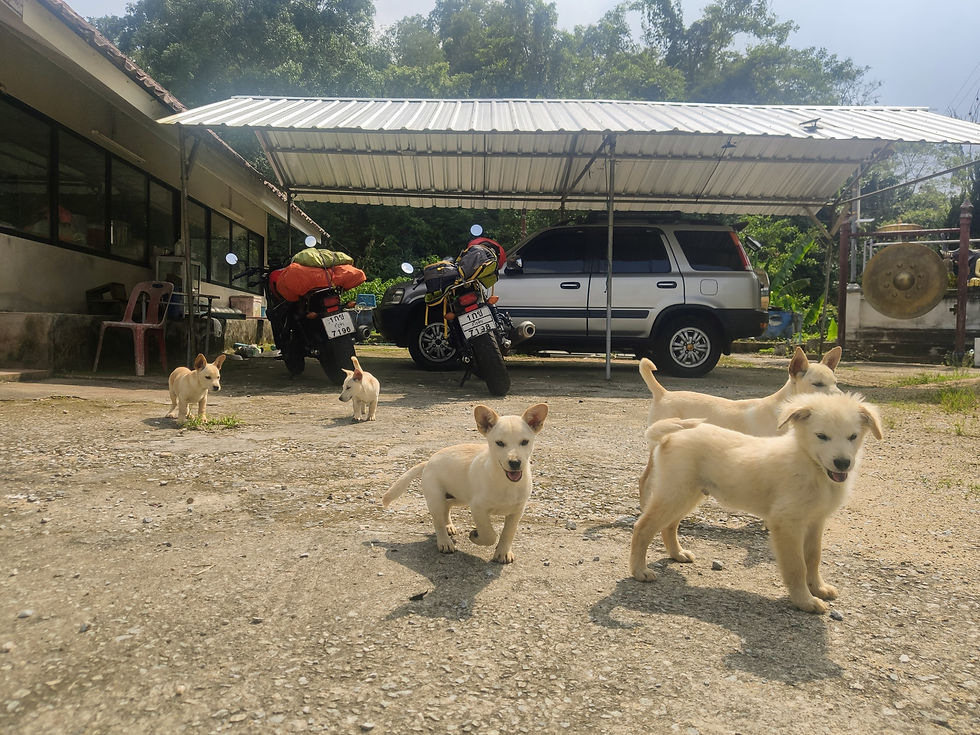
The road really picked up here, with lots of sharp curves back and forth but thankfully very light traffic. We turned onto a smaller road that was really only wide enough for two motorcycles and made our way up a valley to the Pong Duet Geyser. The guard saw were debating the 300 baht ($9) entry fee, and offered us the half-priced child admission instead. We parked, crossed a bridge over a very brown river, and walked down a trail into the thick forest. The geyser was more of a spring where boiling sulphuric water burst from underground, and there was a Jacuzzi-temperature wading pool further downstream. It was far too hot to even contemplate swimming in it, but Richard nearly ended up in it anyhow after losing his footing on some muddy grass. For a park barely reachable by four-wheel vehicles, it was incredibly well maintained, and nearly totally empty.
Back on the main road, we crossed several windy passes over mountains that got a little higher each time. The cool breeze at the tops was a godsend, but the elevation was still low enough that there were never large breaks in the trees to really enjoy the view. Otherwise, it felt like the Central Highlands of Vietnam, just with better roads. We made it into the Pai River valley and stopped at a scenic spot as the sun dipped behind the mountains. We couldn’t stay long, though, as we were instantly attacked by mosquitos, who managed to bite us through our jackets. We tried checking into one place, but the staff was nowhere to be found. The next place was more successful, and we got a beautiful room with floor-to-ceiling windows for 500 baht ($15).
Back on the Backpacker Trail
Downtown Pai thankfully showed some more signs of life, with a bustling street food market. We met a British woman our age named Cholula, who apparently had never heard of the sauce with the same name. Further down the street, we ran into Raj, a British-Indian guy we had first met at the waterfall misadventure, and followed him to a jazz bar. Pai is known for its backpacker and hippie scene, and this is where it was on full display. The first part was open mic, and different groups of grimy-looking hippies got up to play, before a local band took over. I have never seen so many white men and women with corn rows in one place before. We felt some drops falling, and ran to our bikes before it started raining harder. The joke was firmly on us, because it did rain harder for the 10 minutes it took us to ride back to the hotel, and then stopped.
The air the next morning was hot and heavy, but we weren’t going to complain as long as it was dry. We picked up Cholula and rode out of town with her to Pai Canyon, a few kilometers out of town. Walking up a hill, we arrived at an odd landscape, with narrow ridges fanning out across the valley. We walked down a few until reaching the forest below, and took in the views of the valley around us. The lack of a crowd, even in such a backpacker hotspot, was easily explained by the blazing heat. A few more kilometers down a very windy track through a dense forest brought us to Pam Bok waterfall, where we managed to bargain our way in paying the child admission rate. The cool water was amazingly refreshing, and we had the place entirely to ourselves.
We rode back into town, dropped off Cholula, and had lunch with an American we ran into named Mike. He had been living in Pai for the past four years, and it was unclear how exactly he made any money. Between basic backpackers, old hippies, and shifty expats, Pai had a host of odd foreigners fit for a sitcom. Evidence of the backpackers was everywhere, even when there weren’t that many of them: signs for Thai food in Hebrew, scooters for rent at every corner, and my favorite – a sign for “authentic travel” advertising “tipsy tubing” in the river.
We picked up our gear and headed back towards Chiang Mai, stopping at the bridge over the river at the edge of town that looked rather like a smaller version of the famous Bridge over the River Kwai. The Japanese had forced Thai villagers to build the bridge so they could send troops from Vietnam to attack British Burma, a plan which never materialized. The sign, however, was much friendlier towards the Japanese, showing them next to smiling villagers and saying that they “asked” the villagers to build the bridge. Japan is by far the largest provider of development aid to Thailand, so the historical whitewashing was not exactly surprising.
We rode back over the passes, more confident than the day before. After an hour or so, the road became intermittently wet from recent showers, and then it started raining. I pulled over at a small shop to wait for Richard and decide what to do, but he simply blew past me as I was waving my arms at him. I had bought some popcorn, so I ate some and pursued Richard as quickly as I dared, and the rain thankfully stopped by the time I caught up. We then got caught in dense rush-hour traffic on the highway to Chiang Mai, and sat at an absurdly long traffic light entering town. I had just been thinking to myself on the ride over that Thailand was a nice place lacking in superlatives, but this was a strong contender for longest traffic light in the world. By the time it turned green, there were literally hundreds of motorcycles all around us at the front of the column, all of which started moving all at once as soon as the light changed. We returned to the same hotel in Chiang Mai, had a delicious Thai dinner, and passed out early after a long day in the sun.
Rest and Remorse
The next morning, we swapped out our two big Hondas for a little blue scooter, which at 70 kg lighter felt like riding an e-bike. We headed to the outskirts of town, where my Thai friend Putt had recommended a restaurant. The menu was on the wall in Thai and nobody spoke much English, but Google Translate and some hand gestures helped us end up with delicious beef curry over rice and tom yum soup. Everything seems to be backward in Chiang Mai. The night market is open during the week but not on weekends, shops open and close seemingly at random, it rains when the forecast predicts dry weather, and this restaurant was full of people getting their vermicelli fix at 10:30 on a Tuesday.
Chiang Mai is in a broad valley, and to the west is a 1,600-meter mountain called Doi Suthep. The little scooter huffed and chugged at full throttle, and slowly got us to the temple most of the way up. We climbed up several hundred steps with dragon-shaped railings, past some sharp-looking monks in masks that matched the orange of their robes. At the top was a beautiful and very golden temple complex, which people orbited clockwise as they prayed in front of various statues. Thai Buddhism was definitely heavier on the gold leaf than Vietnamese or Japanese Buddhism, and it probably would be considered gaudy in a Western setting. One room to the side was full of statues of Buddha in different poses, with a monk off to the side watching YouTube videos in the lotus position.
Past the main temple was a garden leading to a platform with sweeping views of the valley below, which we took in as we spotted the first Russians of the trip. We weren’t the only ones giving them a strange look, and I wondered how I should other Russians I might happen to approach. The garden itself was full of fake flowers and statues of birds, which I know is a Buddhist thing but I don’t quite understand. A few more twisty kilometers up the road was Bhubing Palace, one of the royal family’s official residences built to take advantage of the mountain air. We never made it in, however, as a stern-looking soldier told us our shorts didn’t pass the dress code. What was good enough for the Buddhist temple evidently wasn’t good enough for the Thai royals.
The scooter had absolutely no engine braking, and really took off down the windy road with the combined 160 kilograms of men and gear on it. The seat was also so short that anytime Richard hit the brakes our helmets would collide from the whiplash effect, but we made it down in one piece and returned to the market for Richard to try on the suit he had ordered the previous day. In classic fashion, it then rained exactly for the seven minutes it took us to ride back to our hotel and no longer.
We dropped off our dirty clothes at an apartment where a shirtless grandfather was eating an apple as an even less-dressed child cried, but the man I presumed was the father promised they would be ready the next day. Chiang Mai’s nightlife – or at least the establishments oriented towards tourists – is concentrated in one square block, and we headed there to meet a local girl I will call Jenny whom Richard had met online. She was at a bar with her friend we'll call Joy, and as soon as we sat down she started pouring us shots of peach soju. Three other tourists then arrived, one of whom had met Jenny the same way, and joined the fun. With two women walking around trying to sell bracelets far too explicit for me to upload here, it was quite the scene.
We all crossed the street to the same club where we had spent our damp first night, where the three others split off from our group and Jenny bought us all a margarita bucket. Having spent under 100 baht ($3) the whole night, I was starting to worry that this was an elaborate scam, but couldn’t yet spot the catch. It was another sweaty and strobe-light–heavy night as we paired off with our new friends, taking breaks from dancing to take sips of watermelon margarita. By 1:00, we were all swaying on our feet, and I had a rare moment of emotional clarity which led me to go home immediately and leave Joy to her ploys. It later became clear that Jenny was just a wild soul having fun, but Joy was an independent sex worker on a night off whose normal clientele consisted of wealthy Chinese and Korean men. The sex tourism industry in Thailand is completely out of control, but that’s a topic for a later post.
After a tumultuous night, we took the morning to recover and process what had happened. In the early afternoon, we hopped on our trusty scooter and rode 15 km north-west out of town to Huay Tung Tao, a beautiful reservoir set among green mountains. The shore was lined with floating huts with thatched roofs, where we could sit, read, and sip cold beer with our legs in the warm water. It was a fantastic place to relax before our trip ratcheted up again, as the forecasts for the entire region were looking far more promising than before. The other huts were full of multigenerational local families, which was clearly a major feature of Thai culture – even on a Wednesday afternoon. We rolled up our shorts and waded in, causing one middle-aged man to follow us in. Improbably, Jenny was also at the lake with her sister, but no further shenanigans ensued.
We returned to Chiang Mai where I had made dinner plans with Kayla, an American woman I had briefly met earlier in the week. I have often been accused of being a pretentious prick, but I mean this in the most objective way possible – Kayla was a glimpse of the working-class rural white America I hear so much about in the Yale debate scene, but have very scant opportunities to meet. Originally from rural West Virginia, she had the soupy accent, the tattoos, and the nearly quarter-century younger half-sister to fit the part. She now lives in Hilo, Hawaii, where she works as a bartender until she starts a “real career.” Her stories were all family estrangement, the challenges of finding a real job and paying rent in Hawaii, and the frequent clashes between the white “expats” from the mainland and the natives who want to protect their way of life. We swapped stories from the beginning of the pandemic, which have now become the default ice-breaker option among frequent travelers.




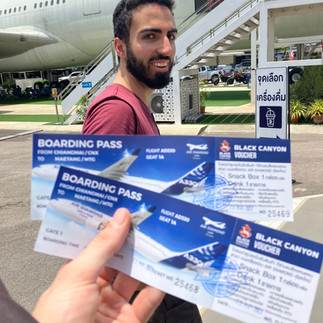









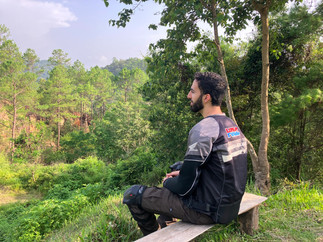







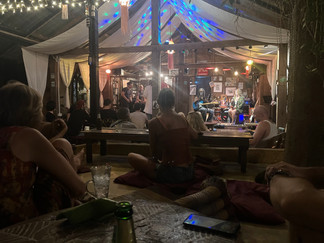

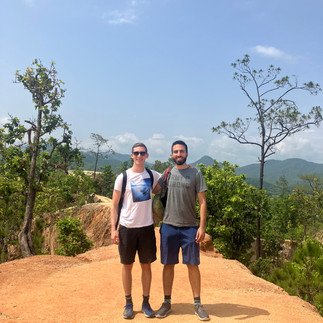





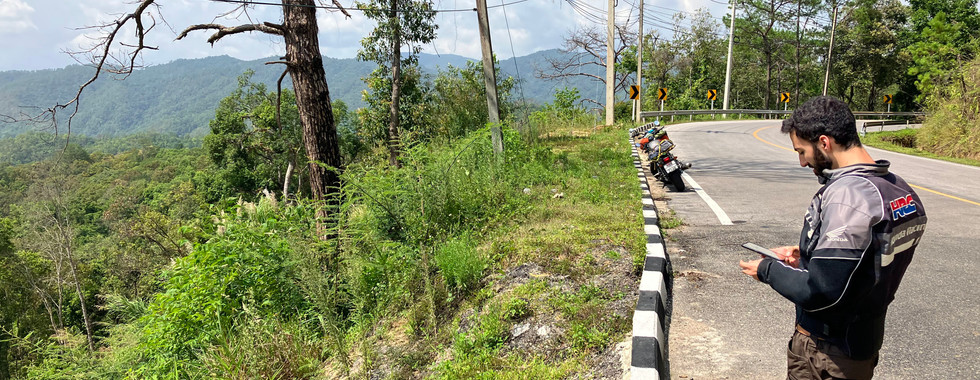





























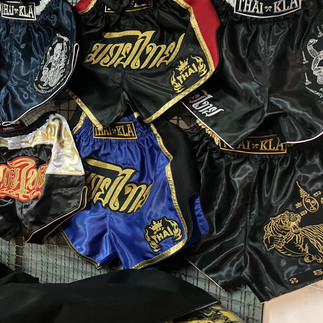














Comentários